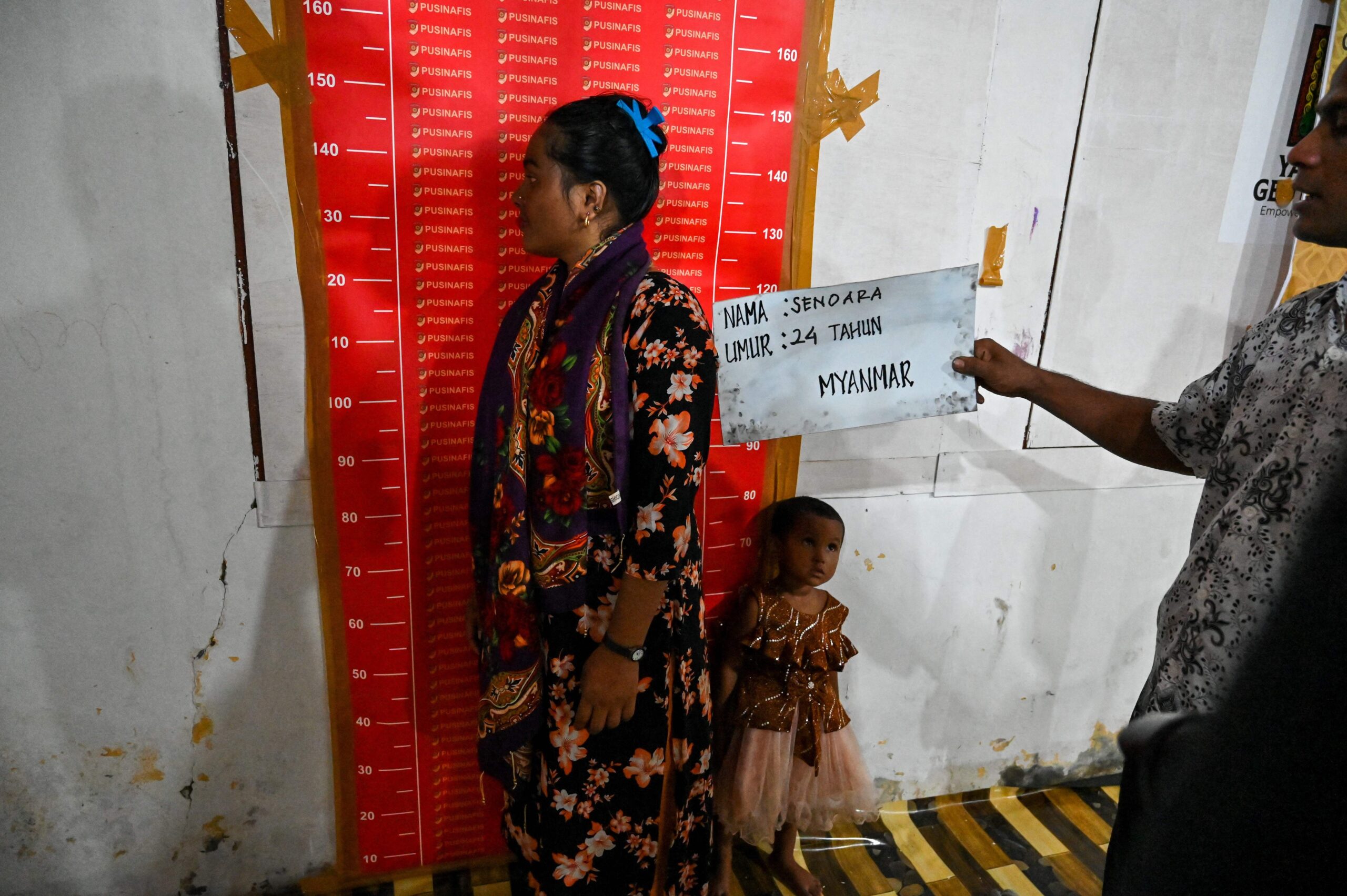- Tuesday, November 26, 2024
Rohingya refugees numbering 135 were relocated from a beach in Aceh Besar regency of Aceh province to a governor’s office building

By: Eastern Eye
SOME of the more than 300 Rohingya refugees who arrived on the western coasts of Indonesia last Sunday (10) were transferred to a temporary shelter during the visit of a UN representative.
A group of 135 refugees, mostly women and children, were relocated from a beach in Aceh Besar regency of Aceh province to a governor’s office building before the authorities eventually conveyed them by truck to a camping ground.
“They are relocated to the camping ground by the province’s [refugee] task force. They will join other Rohingya refugees that have been there,” said Aceh Besar acting regent Muhammad Iswanto last Sunday evening.
A group of 180 refugees from the persecuted Myanmar minority arrived by boat at 3:00 am local time (2000 GMT Saturday) on a beach in the Pidie regency of Aceh province.
Another boat carrying 135 refugees landed in neighbouring Aceh Besar regency hours later after being adrift at sea for more than a month.
“We had been in the sea for almost one month and 15 days. […] We left on November 1st,” 24-year-old refugee Muhammad Shohibul Islam said.
The refugees gathered on a plantation next to the shore, where they drank water given to them by the locals. Some lay on the ground, trying to rest after their journey.
Police found stacks of United Nations refugee cards in a cardboard box brought by the refugees, an AFP journalist saw.
“We noticed that some of these refugees have refugee cards. So, let them be re-registered first by the United Nations High Commissioner for Refugees and the International Organisation for Migration [before we act further],” the local police chief Rolly Yuiza Away said on an interview via telephone.
The authorities kept the refugees on the shore where they landed, with mothers cradling their children, some of whom were naked, in their arms.
The local government in Pidie said earlier that it would not take responsibility for providing the refugees with tents or other basic needs.
They said they would not “bear any expenses” and that no shelters were available.
Local authorities and residents have been rejecting the Rohingya, threatening to push them back to sea since more than 1,000 arrived last month.
Last Wednesday (6), about 150 protesters in Sabang Island in Aceh clashed with police as they called for the Rohingya refugees to be relocated.
“The problem has been in situations where the refugees have arrived on the beach and there has been uncertainty on where to take the refugees,” said United Nations refugee agency representative to Indonesia Ann Maymann.
“It is the government that should decide that. So I am sure we can manage this.”
Th agency’s official Faisal Rahman earlier said that the government acknowledged that designated shelters were over capacity, but said the agency and the Indonesian government were trying to find a place for the refugees.
“We continue to explain the situation to the people and ensure that they will not be burdened with the handling of refugees,” Rahman said. “The government is working to provide shelter as the number of refugees arriving is very high.”
President Joko Widodo said last Friday (8) that temporary relief would be provided for refugees “with a priority on the interests of the local community”.
He accused a human trafficking network of being behind the rising number of Rohingya refugees reaching his country by boat, vowing to take strict action against the perpetrators.
Indonesia is not a signatory to the UN Refugee Convention and says it is not compelled to take in refugees from Myanmar.
But neighbouring countries have also shut their doors, leaving the Rohingya with few other options.
Rohingya refugees among the recent arrivals in Aceh said they fled escalating brutality in the camps in and around Cox’s Bazar in Bangladesh, which hold more than one million people and where gangs regularly abduct and torture residents for ransom. The mostly Muslim Rohingya were the target of a 2017 crackdown by Myanmar’s military. (AFP)